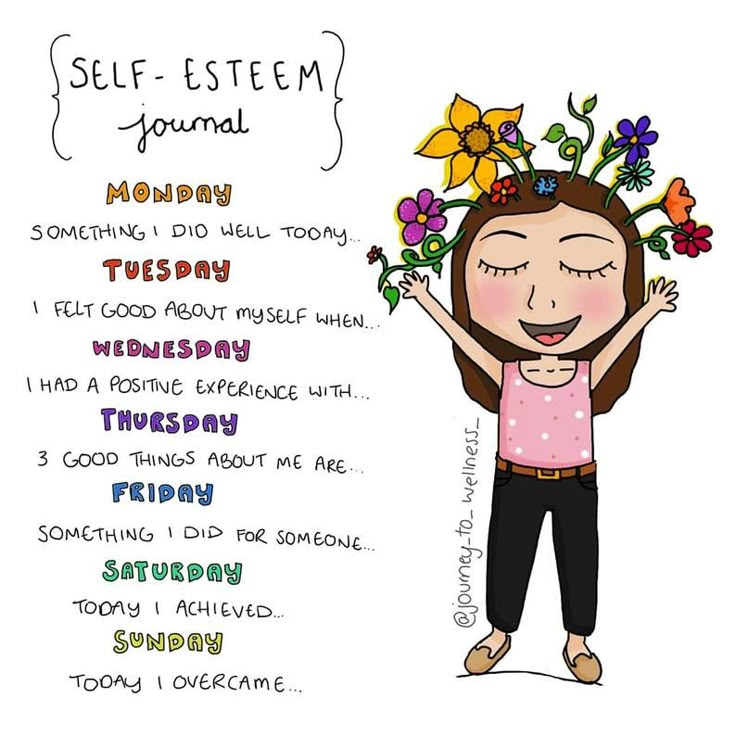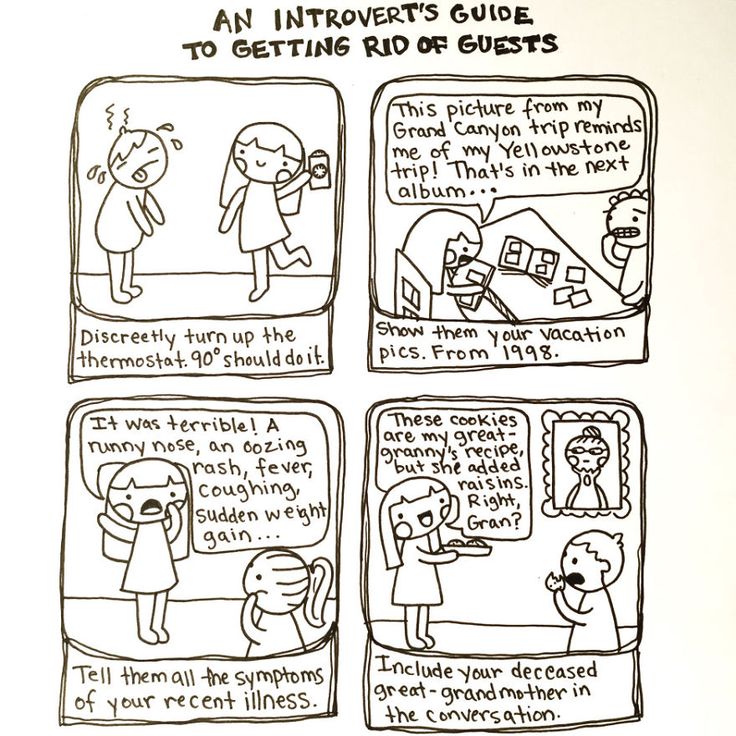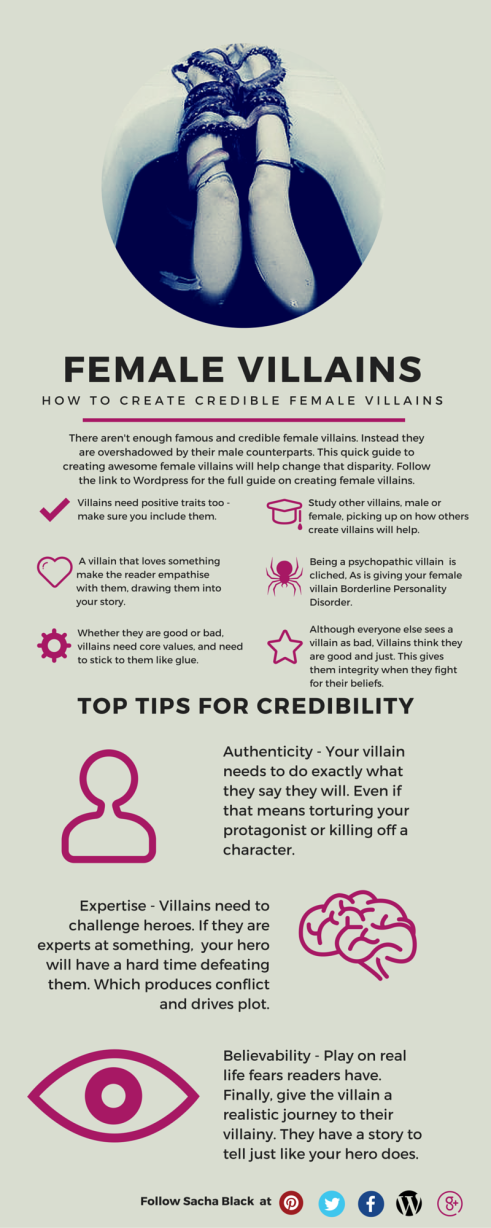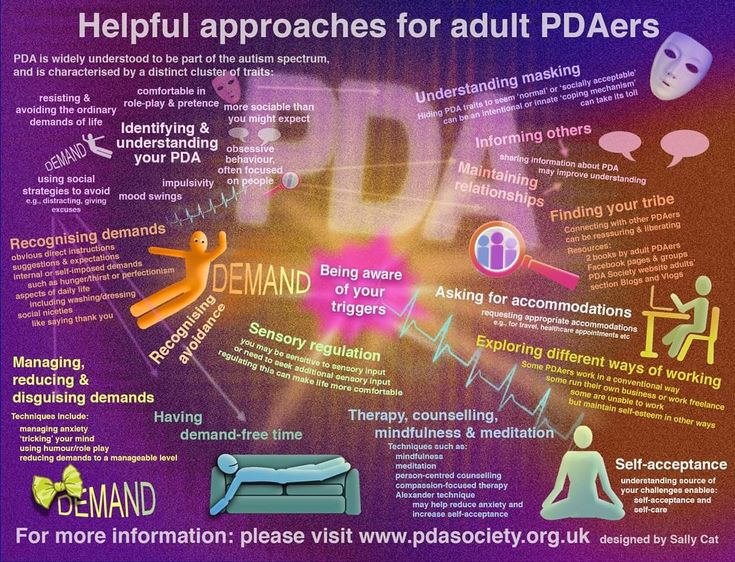How to love someone with low self esteem
How to Support a Partner with Low Self-Esteem
As a counsellor, I have two areas that I specialise in, these being relationships, and depression/self-esteem. Often when couples present for help with a relationship issue, there is one partner who is suffering from either depression or has low self-esteem. In order to help the relationship, we also need to address these individual issues in order to create a healthy, strong relationship.
While you can’t fix your partners self-esteem, you can go a long way to supporting them as they heal themselves and this ultimately benefits everyone. Some people are aware that they have low self-esteem and their partner is also aware. At other times, the behaviour of the partner with low self-esteem is put down to other things and they are ‘blamed’ for these behaviours.
What are the signs of low self-esteem?
- Struggles to accept compliments, often deny or push the compliment away
- Seems very needy in some ways. Perhaps affection or always looking for validation
- Not comfortable in some social situations
- Doesn’t achieve career wise as you would expect them to, based on their capability
- Not willing to try new things
- Reacts angrily to any possible negative comment about themselves
- For women, often wearing a lot of makeup to leave the house or even within the home
- A real focus on how they look and needing validation around this
- For men (some women), talking a lot of assets they have
- Rarely initiate intimate affection
- ‘Clingy’
- Need to check on you when you are out
- A lot of questions about what you are doing when you are not with them
These are just some signs, and not all of these on their own indicate low self-esteem. But, chances are, if your partner ticks a few of these, then they may have low self-esteem. Supporting them to get to a healthy place for themselves, will ultimately help the relationship too and make your life easier.
How to support a partner with low self-esteem
Compliment
Offer your partner real compliments whenever you can. It must be sincere or they will see through it. If your partner is often negative about how they look, then this is a good area to focus. Frequent small compliments around how they look, can have a big impact of their self-view. They may push them back at you, but offer them anyway.
Look for anything you like in them or any small achievements they have made and tell them about it. Lots of small compliments often have a way of starting to take hold on someone until they may start to believe them.
Don’t be angry
It is hard work sometimes living with someone with low self-esteem. You see a great individual (or you wouldn’t be with them) but this is not what they see.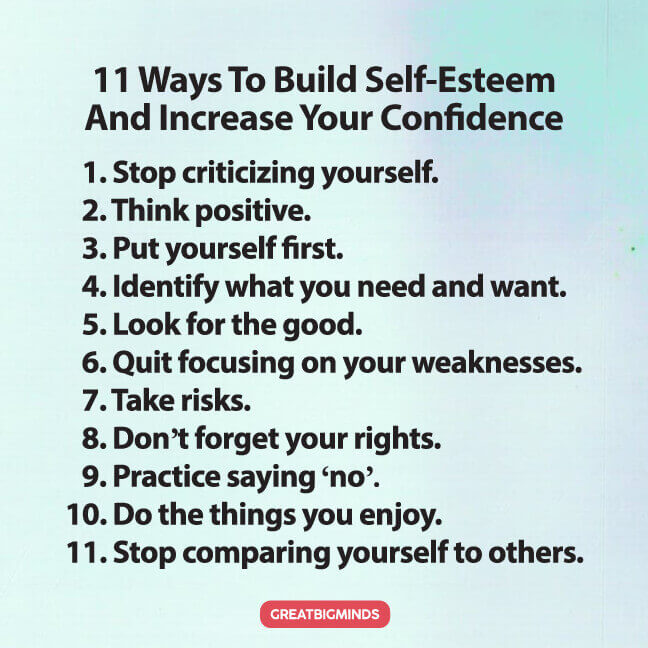 It can be frustrating at times to live with the negative side of low self-esteem, but getting angry at them for what is ‘survival behaviour’ for them only makes it worse.
It can be frustrating at times to live with the negative side of low self-esteem, but getting angry at them for what is ‘survival behaviour’ for them only makes it worse.
For example, you may think your girlfriend is gorgeous and get sick of hearing her say how she looks awful. You think she is fishing for compliments because she surely must see that she is gorgeous. You get frustrated and tell her ‘Fine, then you do look awful in that outfit’. This small outburst can have a huge effect on crushing her self-esteem and cements her view that she does look awful and that you have finally told the truth she believed already.
So, not saying you can’t ever get angry, but be slow to react when you can.
Accept their feelings as real for them
Your view of your partner with low self-esteem is very different than the view they have of themselves. It can be hard to understand and accept when the evidence is often obvious to you. But, be aware that their thinking of themselves is faulty.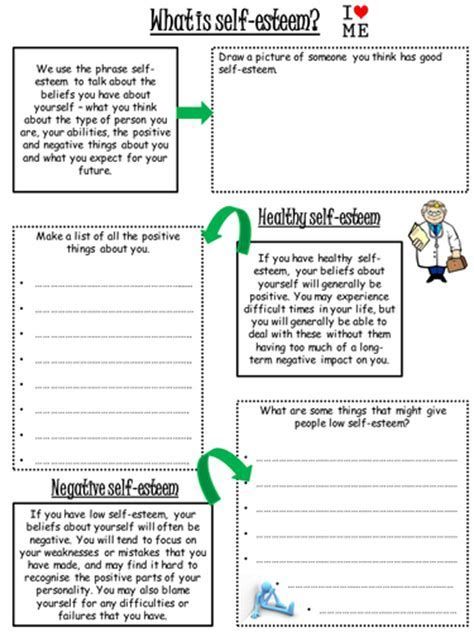 You may think that they are attractive, fun, successful, kind, intelligent etc. They may believe some of these things too, but often there are areas where they have a completely distorted view of these things, and for them their view is real.
You may think that they are attractive, fun, successful, kind, intelligent etc. They may believe some of these things too, but often there are areas where they have a completely distorted view of these things, and for them their view is real.
Accepting that their feelings and thoughts are real and valid for them is important. If you accept this, then you can be more patient and better help support them to change their thinking. Telling them they are stupid for thinking how they think, does not help, it just makes them try to hide their thinking and not be able to get help to fix it.
Listen to them
If your partner is telling you how they feel about themselves, then listen. You may not understand, but giving them the support by simply listening is valuable and makes them feel validated and supported. You don’t need to agree with them, simply provide a sounding board for them to talk freely. You can then offer to get some help with them or tell them that is not how you see it, but you accept that is how they feel.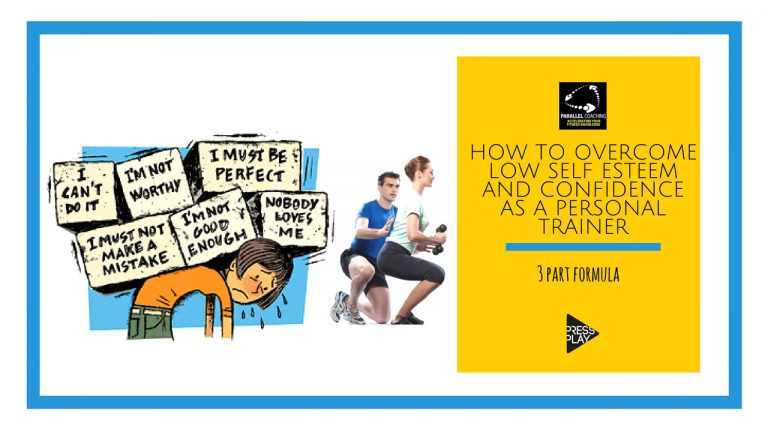
Include them
Make an effort to include your partner in activities with you and with friends. If they are reluctant to participate, it may be that they want to but are unsure of themselves. Be supportive and encouraging and try and get them involved.
There can be a tendency to do your own thing because your partner says no to participating. You have to have your own time, but be sure to include them often so they feel they are important to you and have a sense of belonging.
Watch what you say
People with low self-esteem can be very fragile and often hear a negative when there is none intended. Making a joke which seems perfectly harmless to you, can have big consequences for them. Be aware that small things you say can take on a much bigger meaning for them. This is not to suggest that you need to weigh every word before you speak, just be aware that anything negative may hold a greater meaning to them than you intended.
Accept Defensiveness
Your partner may seem to be overly sensitive and defensive. This is normal for someone with low self- esteem. They can be quick to react if they feel you are putting them down or attacking them in some way. Try and be aware that they are fragile and accept that the defensiveness is a protection for them when they are feeling vulnerable.
This is normal for someone with low self- esteem. They can be quick to react if they feel you are putting them down or attacking them in some way. Try and be aware that they are fragile and accept that the defensiveness is a protection for them when they are feeling vulnerable.
In summary, you can’t fix your partners self-esteem and you are not responsible for it, but as their partner, you can have a big impact in helping to support them while they work on repairing it. You are not expected to be perfect and always say the right thing, but having an awareness of how you express a negative can help. Also, putting in lots of positives can really help both your partner and your relationship.
Low self-esteem can be changed, but it takes work and often some outside help to get real change. If you have any questions on this article, or about low self-esteem, please feel free to contact me.
I work with people all over the world to help support them and their partners through their journey to healthy self-esteem, book an online session to start feeling supported today.
How to talk to a partner with low self-esteem
What can you do when the person you love, doesn’t love themselves? It can be quite a challenge, but here are some tips to help you provide the words of comfort and support they need
If you’ve ever looked in the mirror and disliked the person looking back at you, then you’ve experienced low self-esteem. It isn’t necessarily related to your physical self — although having poor body image can cause negative thoughts — but it’s intrinsically linked to how you value yourself as a person.
People with self-esteem issues often neglect to take care of themselves. They may refuse to go shopping for new clothes, or fail to maintain good personal hygiene. They could be unknowingly sabotaging relationships, or other aspects of their life, because they feel undeserving of happiness.
Being in a relationship with someone who has low self-esteem can be tough.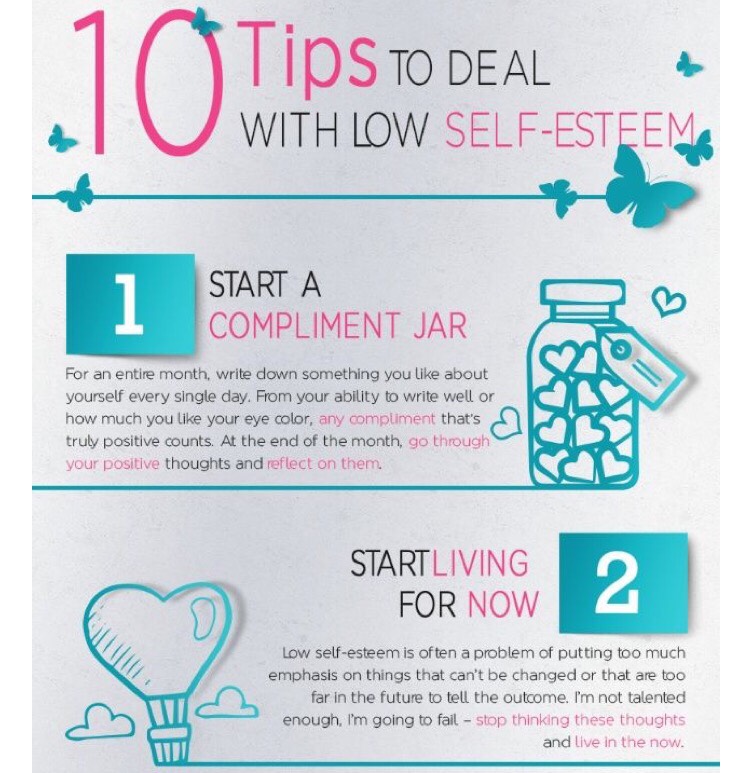 Here are some suggestions on how to talk to them, to try to support them:
Here are some suggestions on how to talk to them, to try to support them:
1. Remain autonomous
First of all, accept that you are not there to ‘fix’ your partner. Their self-esteem has to come from doing things that make them happy. Relying on an external source for that happiness means that the self-esteem created is very fragile, and that doesn’t really solve the problem. Independent self-esteem is strong, and won’t crumble under pressure.
Encourage your partner to take care of themselves by doing the things that truly make them happy
2. Avoid flippant compliments
According to trainee counselling psychologist Sanjivan Parhar, there are two versions of self-esteem. There is an external version, that may appear happy and confident. Then there’s the internal, more authentic version. Compliments often feed the external version but fail to address deeper concerns.
For example, if your partner says they want to lose weight, your gut reaction might be to compliment their appearance, but this can feel dismissive.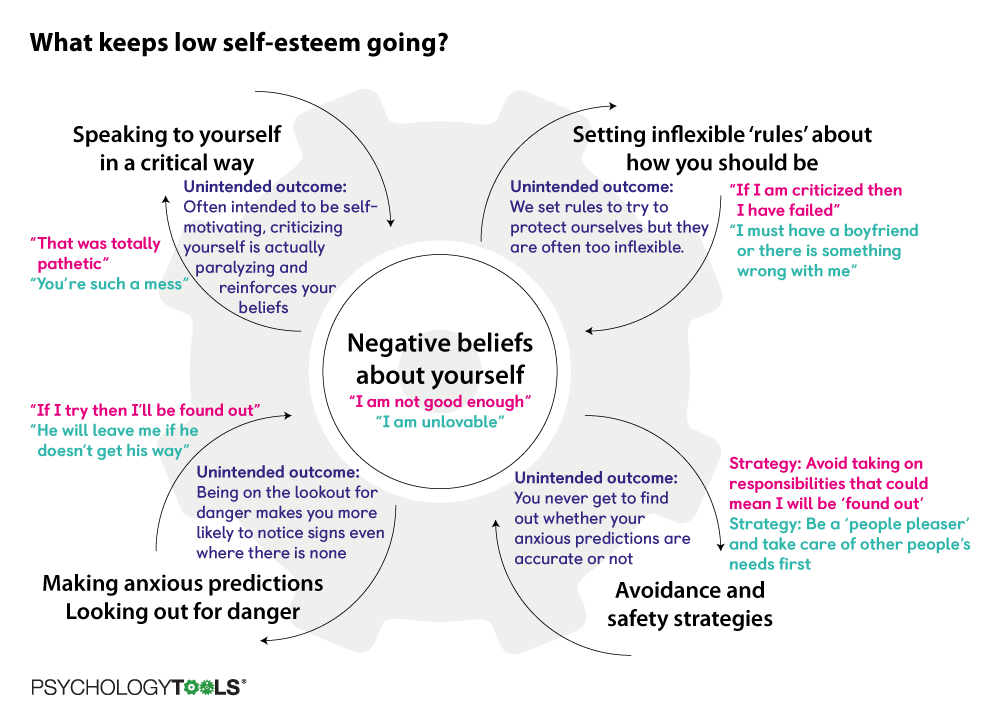
“Ask your partner what it is that they’re unhappy with at this moment,” says Sanjivan. “Validate these negative feelings and let them feel heard. Then you can move on to offer a positive opinion about how they look.”
Try not to say things like ‘You’re fine the way you are’, or ‘Don’t worry about it’, as this doesn’t give them space to express how they feel.
3. Help them to see a new perspective
Most of us live with an internal dialogue. You may not even notice it, but it can form the basis about how you feel about yourself. For example, someone who struggles to be good at football might internalise the idea that they are terrible at all sports – so much so that they begin to believe it. The reality of the situation might be that they are still learning, recovering from a physical injury, or maybe just better suited to another sport entirely.
It’s very easy to take what your inner critic says as fact instead of opinion. What’s helpful in this situation is to acknowledge another perspective. For example, if you have an inner voice saying that you’re unattractive, acknowledge this, but then look at yourself from an outsider’s perspective. What would a friend say?
For example, if you have an inner voice saying that you’re unattractive, acknowledge this, but then look at yourself from an outsider’s perspective. What would a friend say?
Encourage your partner to stop comparing themselves to others (whether it’s in real life or on social media) as this can reinforce the negative voice that says they’re not good enough.
4. Encourage practising self-love
It can be heartbreaking to be deeply in love with someone who you know to be a wonderful person, only to watch them constantly hate themselves. Try to encourage your partner to take care of themselves by doing the things that truly make them happy. It could be going out for a meal, meeting up with friends, or picking up a hobby that has fallen by the wayside. Sanjivan says that true self-love emanates from “developing your own authentic, true self, outside of a relationship, friends, or family”.
5. Don’t walk on eggshells
It can be tempting to filter what you say, to ensure you never offend a sensitive partner. While you don’t want to antagonise them, avoiding certain issues could do more harm than good.
While you don’t want to antagonise them, avoiding certain issues could do more harm than good.
Finding someone who you can share your vulnerability with is something to strive for, not avoid
People with low self-esteem are hyper-vigilant to anything that will confirm the negative thoughts they’re already having, so censoring yourself can lead to tension when difficult topics arise.
“Instead of getting defensive or disengaging, try to explore what it is you’ve said that caused upset,” suggests Sanjivan. “Give them a chance to explain the meaning they have inferred. Then you can explain what you actually meant.”
Instead of avoiding tricky conversations, this actually encourages a more open line of communication, and should help them to find a new perspective.
“It’s a way of facilitating an environment where people are comfortable in relationships to show their vulnerability. Finding someone who you can share your vulnerability with is something to strive for, not avoid,” says Sanjivan.
How to Love Someone Who Doesn't Love Himself
We've all heard—and sometimes learned from bitter experience—how difficult it is to be in a relationship with a narcissist or abuser. However, according to psychotherapist Kurt Smith, building a healthy relationship with a partner who does not love himself is also not easy.
“The fact is that such a partner usually loves you too much, and as a result it turns into a co-dependent relationship. Sooner or later, this burden may turn out to be unbearable for you, ”he said. nine0003
The natural way out of this situation is to make your partner love you. To convince, to show that he is really worthy of this love. But the truth is that these are internal changes in another person, which we can hardly influence, and therefore it is important to be aware of the limits of our capabilities.
1. Recognize that you cannot solve his problems for another psychologist. “It’s important to acknowledge that your partner has self-esteem issues and accept it,” advises family therapist Shari Fus.
 “Realize the impact that your partner’s condition has on you, and convey it to him in the most correct form.” nine0003
“Realize the impact that your partner’s condition has on you, and convey it to him in the most correct form.” nine0003 "You could say something along the lines of 'you know, it can be hard to love you when you constantly scold yourself' or 'it would be great if you could turn to someone for help, because it's wrong, what about your state you only talk to me, ”Smith agrees.
2. Be a mirror
A person with low self-esteem always has a list of what is wrong with him: he allegedly does not cope with his current job, which means he will not get a promotion, allegedly does not know how to behave in a company, allegedly never achieve what he dreamed of ...
You, as his partner, have a unique opportunity to be a mirror for him, in which only his best features are reflected. “At every opportunity, calmly, sincerely, and consistently point out in conversation those qualities that you like in your loved one, things that you admire,” Smith advises. - You can say, for example, "I should learn from you the ability to conduct business", or "I have never met such honest people as you" before.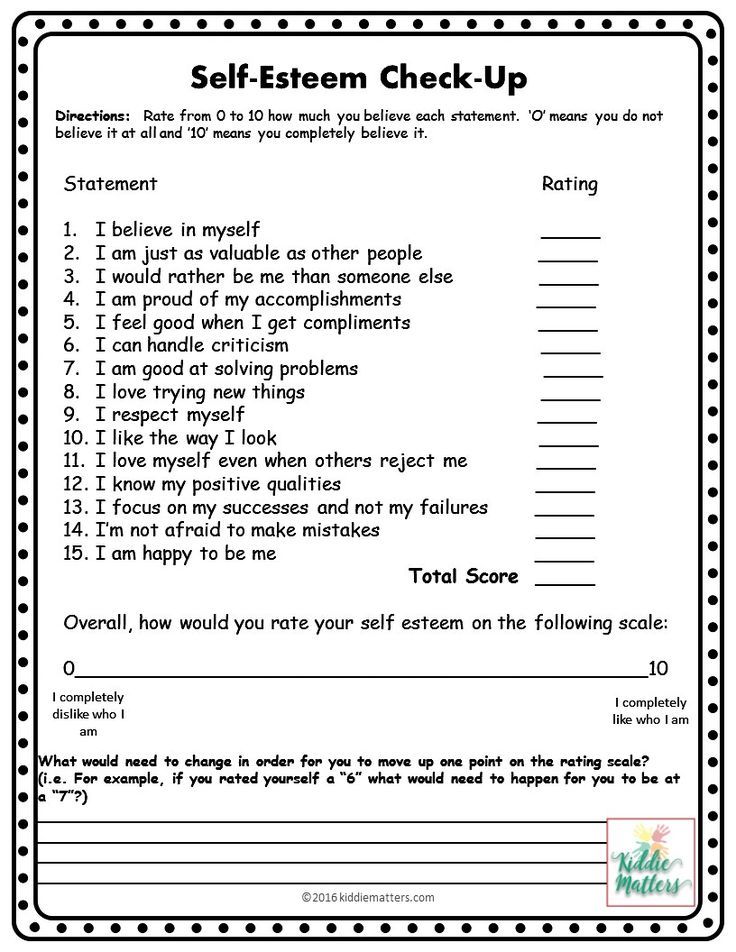
3. When there are problems in a relationship, don't be afraid to discuss them
Fear of hurting a partner can push us to keep our problems quiet and not openly express our needs. You should not do this, otherwise sooner or later you will most likely reach the boiling point and explode.
According to family therapist Winifred Reilly, you can't tiptoe all the time - it only hurts you as a couple. “Don’t like your partner texting while driving or leaving wet towels on the bed? Say so. Be prepared for the fact that the partner will be offended, and try to accept it calmly, without guilt, ”the expert is sure. nine0003
4. Celebrate your partner's successes
Insecure people often tend to conduct internal monologues, belittling and devaluing their own achievements. When they really succeed, they do not celebrate success, believing that there is "nothing special" in it or that they are "just lucky", but they easily find arguments to support their low opinion of themselves.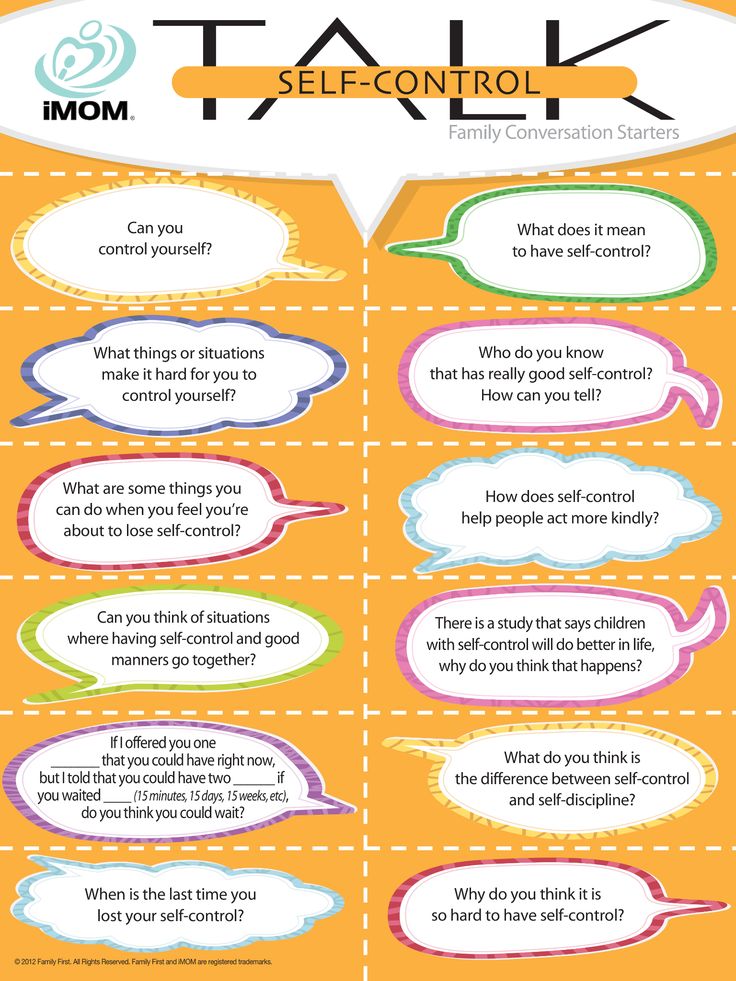
If you know that a loved one is his own harshest critic, become the one who will cheer him up and focus on achievements. “Every time someone compliments or praises your partner, focus on it,” Smith suggests. - Rejoice at every promotion, new friends or new hobby. Sooner or later, the partner, perhaps, will learn to treat himself this way. nine0003
5. Share how you yourself managed to love yourself
Have you ever treated yourself the way your partner treats himself? Tell us how you managed to overcome this, advises psychologist Sanam Hafiz: “A person with low self-esteem, as a rule, is alone with his feelings, and it can be very useful to know that someone close to you coped with a similar condition.”
6. Consider Seeking Psychological Help
As mentioned earlier, self-esteem is a product of inner workings, but this process is usually more effective when we seek help from a specialist, says psychotherapist Marsha Naomi Berger. In addition, it is better for relationships, because if a partner turns to a specialist for support, we cease to act as a “savior”.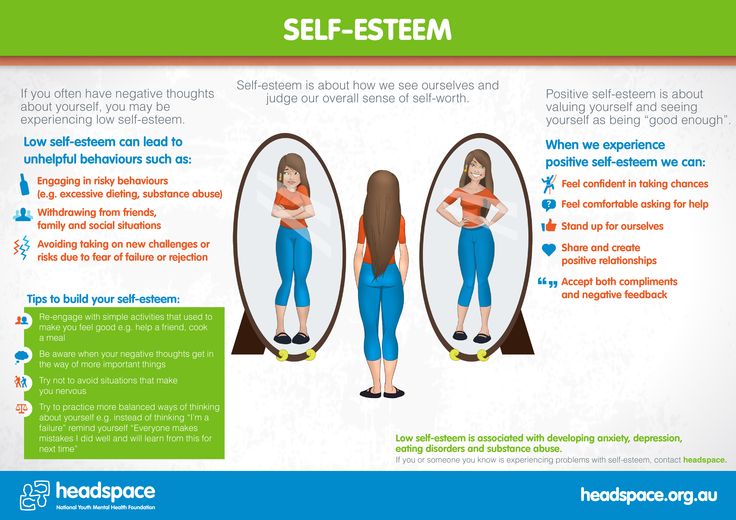 nine0003
nine0003
On the other hand, it’s not out of place for us to ask for help ourselves, even if we think that we are quite confident in ourselves: something pushed us to start a relationship with an insecure partner, and this was not bad would sort it out. Through therapeutic support, the union can become healthier: we will move from a child-adult relationship to an equal partnership of two adults who love each other.
: Author Olga Romaniv :: Dni.ru
Why do some people, leaving one defective relationship, immediately fall into the same one? Why are they haunted by suffering, humiliation and lack of mutual love? Psychologists are sure - it's all about low self-esteem. nine0003
What is low self-esteem. What is it expressed in? What symptoms characterize it?
Our personal assessment of ourselves can manifest itself:
- a feeling of our own inferiority;
- the presence of feelings of guilt;
- the realization that life is unfair;
- that people around you do not appreciate, do not like, use, etc.
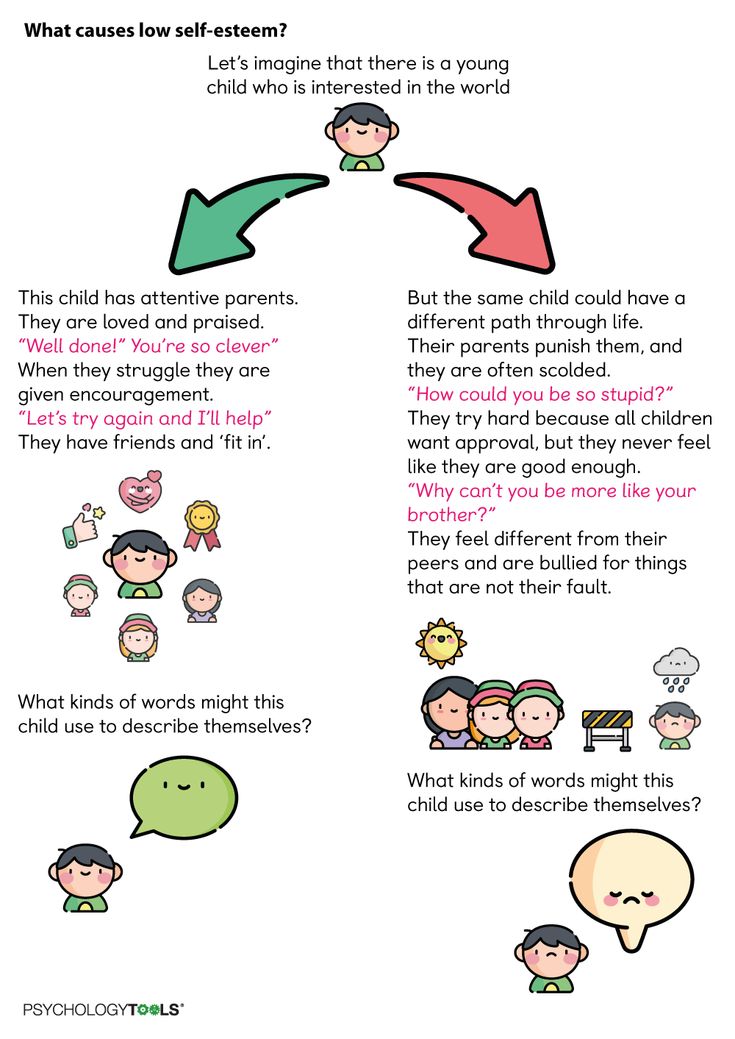 ;
; - your choice is certainly bad - not the right profession, not the right partner, while you, as a rule, do not change anything in your life, you prefer to suffer in silence and terrorize your acquaintances with this; nine0052
- you know for sure that you deserve more and better, but for some reason, of course, beyond your control, you don’t have this, which accordingly causes suffering, acceptance of the bitter truth of life, constant dissatisfaction with yourself;
- you are envious, constantly comparing yourself with others;
- it is difficult for you to make a choice: for example, in a store, buying clothes, groceries; you are indecisive, often buy things, and then rent them out;
- someone else's opinion is the ultimate truth for you. nine0052
Even the presence of 1-2 of the above signs indicates that you have problems with self-esteem. And this is "greetings from childhood", from beloved parents who, out of the best of intentions, were constantly dissatisfied with you: your figure, behavior, habits, schooling. And today, having become adult uncles and aunts, you continue to dislike yourself. You look at yourself in the mirror through the eyes of your mother, who, instead of complimenting, poked you with her nose at the fact that you are overweight, face like your father, too tall/short, and so on. If adults were looking for flaws in you, now you are doing it. nine0003 Photo: www.globallookpress.com
And today, having become adult uncles and aunts, you continue to dislike yourself. You look at yourself in the mirror through the eyes of your mother, who, instead of complimenting, poked you with her nose at the fact that you are overweight, face like your father, too tall/short, and so on. If adults were looking for flaws in you, now you are doing it. nine0003 Photo: www.globallookpress.com
Most likely, as a child you realized that in order to be loved, you need to please something, do something in order to change your opinion about you. After all, how can you just love someone who looks like a father, stoops, makes mistakes, doesn’t study well enough and, in principle, does not meet any standards. But if you match, then they will definitely love it!
In the head of a person with low self-esteem, there is no concept of unconditional love. You must either suffer or deserve love - there is no other way. This is the model of relationships that people pull with them into adulthood, where a huge number of disappointments await them.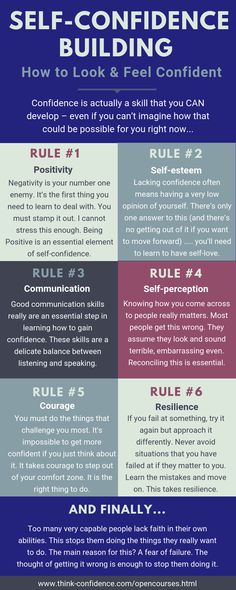 nine0003
nine0003
Why do we say low self-esteem is always a bad choice in love. Because a person with low self-esteem most often behaves insincerely in a relationship. He constantly pretends because he needs to conform all the time to be loved. Low self-esteem pushes women to turn a blind eye to any, sometimes even boorish attitude towards themselves: forgiveness of betrayal, drunkenness, beatings. Women live for years with men who offend, humiliate, beat them, and at the same time manage to justify them and do not leave - what if no one else looks at them and wants to ... Divorce?! What will people say? In such families, women are more worried about what people think or say than about the fact that they are actually very unhappy. nine0003 Photo: www.globallookpress.com
Low self-esteem is a huge psychological problem that can lead to very unpleasant consequences, among which an unsettled personal life will be "flowers" compared to prolonged depression or long treatment after a beating.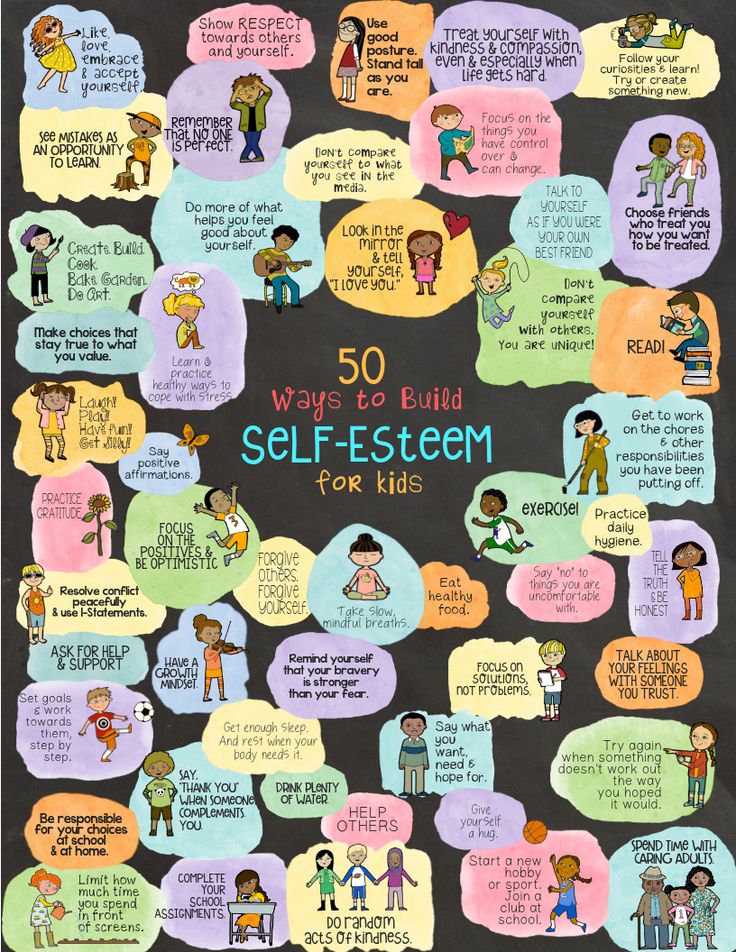 If you clearly understand that you have this problem, immediately take care of yourself. Of course, self-acceptance does not happen at the snap of a finger and after reading smart books (nevertheless, reading is very useful). Start at least small. nine0003
If you clearly understand that you have this problem, immediately take care of yourself. Of course, self-acceptance does not happen at the snap of a finger and after reading smart books (nevertheless, reading is very useful). Start at least small. nine0003
Let the first thing on this path be self-understanding. So ask yourself questions: do you like what you do / eat / watch and so on. If not, then why do you keep doing it? Allow yourself to do what you really enjoy. Respect your desires, indulge yourself and go on about yourself. Second - stop pretending to be a victim of circumstances: a person who loves himself cannot be pathetic. You are not a victim, you are the master or mistress of your own life. Don't complain to others and don't feel sorry for yourself! If you really don’t like something in your life, for example, your relationship with a partner, it’s not at all necessary to immediately leave, slamming the door – learn to negotiate. It is enough to tell a person once that you do not like it for him to understand and change. If you see that nothing is happening, then it is up to you to accept this situation or not. nine0003
If you see that nothing is happening, then it is up to you to accept this situation or not. nine0003
Do not be afraid to break off toxic relationships with a partner, acquaintances, colleagues. If you feel uncomfortable communicating with someone, stop raping yourself, just put an end to it. No need to mock yourself for the sake of some higher goals - children, apartments, money. Admit to yourself honestly: after all, you do not endure this because of the children, but because you are afraid to be left alone. Is it better to endure humiliation? Are you really ready to be offended and humiliated for the sake of fear of being alone with yourself?
Photo: www.globallookpress.com nine0002 In my practice, there was a case: a client who consulted on the development of his business had one bad habit - he liked to drink, and quite seriously. Let's face it, he had a problem. However, he was in a relationship. The girl with whom he lived together suffered greatly from his drunkenness, she asked him to quit, threatened that he would leave, they constantly cursed. Nevertheless, despite the fact that she was absolutely not satisfied with his drinking, she put up with him. Why? Because of love? No, of course, because of low self-esteem. She endured, was comfortable, caved in to the last, did not go anywhere, suffered, because for her suffering was identical to love - love must be earned. In the end, they broke up on his initiative: the companion got her tantrums. He met another girl, who once saw him in a drunken state, turned around and just left. The guy stopped drinking and married this girl. Because you can only love a person who, first of all, loves and appreciates himself. nine0003
Nevertheless, despite the fact that she was absolutely not satisfied with his drinking, she put up with him. Why? Because of love? No, of course, because of low self-esteem. She endured, was comfortable, caved in to the last, did not go anywhere, suffered, because for her suffering was identical to love - love must be earned. In the end, they broke up on his initiative: the companion got her tantrums. He met another girl, who once saw him in a drunken state, turned around and just left. The guy stopped drinking and married this girl. Because you can only love a person who, first of all, loves and appreciates himself. nine0003 You can't fall in love for having completed a course in sex arts. No one will love a woman because she cooks borscht cool. A person who allows himself to be treated badly will also not be loved for this. In general, it is impossible to make someone love themselves by bending, forgiving and swallowing tears. They love you for your individuality, the presence of character and for the fact that you are who you are - special, unique, imperfect, but at the same time you can make borscht, and look through your fingers at some kind of "jamb", because you yourself too " "jambs" is enough.